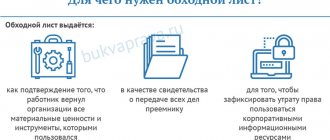How to apply to become an adoptive parent/guardian?
The application and accompanying documents may be submitted:
- to the guardianship and trusteeship authorities in person
- using FSIS “Unified portal of state and municipal services” (Gosuslugi.ru)
- regional portal of state and municipal services (for example, uslugi.mosreg.ru for the Moscow region)
- website of the guardianship and trusteeship authority on the Internet
- through multifunctional centers for the provision of state or municipal services
When submitting an application in person or through the MFC, you must have a passport or other identification document.
Foster family or guardianship – what to choose?
Having decided to take care of other people's children, many people are interested in whether guardianship or a foster family is more profitable for children and parents. This can be determined by studying the features of both forms of education.
Thus, guardianship is offered mainly to relatives or people close to the family. It is valid until the child reaches fourteen years of age. From the age of fifteen, guardianship is issued. A foster family raises a ward until the age of 18. In the first case, only monthly payments for the child are provided, and in the second, an additional salary is provided. You can find out how much foster parents are paid by contacting consultants of the guardianship and trusteeship authority.
For a child, the second format of education is more preferable. Here he is always with his family - parents, brothers and sisters. Children in care do not always live in the same home as their guardians. But in general, the quality of education depends not on the form, but on the family’s attitude towards the child.
How long will it take for the authorities to review my application?
Within 2 working days, the guardianship and trusteeship authorities request from the relevant authorized bodies information about citizens registered at the applicant’s place of residence, the presence (absence) of a criminal record, and the amount of pension. Within 5 working days, the guardianship and trusteeship authorities must receive a response to their request.
If information about citizens living with the candidate and the absence of criminal records was confirmed more than a year ago, the guardianship and trusteeship authority makes a new request.
Expression of consent or objection of guardians to adoption
To carry out the adoption procedure for a child over whom guardianship has been established, the consent of his guardian is required (Article 131 of the RF IC). The citizen must inform the court whether he has any objections to this issue, or whether he agrees that the child for whom he acts as a guardian will be adopted by other persons. The document is drawn up in writing using a special form.
If the biological mother and father of the adoptee are known and alive, but he is under guardianship, in order to carry out the adoption procedure, the court must know their position without fail. The child’s mother and father are required to confirm that they have no objections to this issue, or, conversely, object. The parent can also express his consent or object at the court hearing. When the document is missing for some reason, adoption is impossible. Unlike the consent given by the parents, the consent of the persons entrusted with guardianship (trusteeship) of the child is not decisive. It does not require certification by a notary office, but must also be submitted in writing using a special form. According to the comments to Art. 131 of the RF IC, if a document confirming the consent or expressing the objection of the guardian or trustee is missing, and also if these persons speak out against the adoption of a child, the court may allow adoption without this document (clause 1 of article 124, p. 2 Article 131 RF IC). Such a decision will be made if it is in the interests of the adoptee.
When and how is a home inspection carried out?
Within 3 working days from the date of confirmation by the authorized bodies of the information, the guardianship and trusteeship authorities conduct an examination of the candidate’s living conditions.
The results of the survey and the conclusion based on them are reflected in the report. The survey report is drawn up within 3 days from the date of the survey of the candidate’s living conditions, drawn up in 2 copies, one of which is sent (handed) to the candidate, the second is stored in the guardianship and trusteeship authority. The examination report may be challenged by the candidate in court.
Foster family is a priority area for raising children
Not everyone has the opportunity to formalize adoption due to legal difficulties and the lack of family ties that would allow them to obtain guardianship in a simplified manner (read how to behave in court during adoption by following the link). In such cases, it is possible to choose a simpler form of education. You can find out more about how to register a foster family by contacting a lawyer.
Foster parents can simultaneously support eight children along with their own children. They take on a serious burden of responsibility, committing to provide all pupils with:
- proper upbringing;
- quality food;
- clothes;
- medical assistance;
- education;
- warmth and care.
This experience allows parents to receive a full-fledged family, work experience, and financial support from the guardianship and trusteeship authorities. To do this, an agreement is concluded with the guardianship and trusteeship authority - a foster family agreement. Before registering a child with a foster family, you must carefully study the conditions of this format of home education. They are regulated by law, Chapter 21 of the RF IC. Not only spouses, but also persons who are not married have the right to become adoptive parents.
Article 153. Adoptive parents: “adoptive parents can be spouses, as well as individual citizens who wish to adopt a child or children for upbringing. Persons who are not married to each other cannot be adoptive parents of the same child. The selection and preparation of adoptive parents is carried out by the guardianship and trusteeship authorities in compliance with the requirements established by the Civil Code of the Russian Federation, the Federal Law “On Guardianship and Trusteeship”, as well as Article 146 of this Code.”
ATTENTION : consider the offer of assistance in adopting a child in Yekaterinburg from our lawyer
Documents required for consideration of the request by the judicial authorities
When making decisions on adoption cases, the court primarily cares about the child. In his work, he is guided by Article No. 55 of the Civil Procedure Code (CCP) of the Russian Federation.
The basis for the court's decision is the data submitted by the guardianship authorities in relation to each individual case. Thus, the minimum set of evidence required to consider a case consists of:
- A certificate from a state medical institution confirming the absence of chronic diseases among applicants applying for adoption.
- Certificate from the Department of Internal Affairs confirming that the future parents have no criminal record.
- Certificate of availability of sufficient living space.
- Certificate of official income of the future father and mother.
- A document confirming the applicants' graduation from school.
- Conclusions of the guardianship authorities, summarizing the data received from the adoption applicants.
Only after reviewing the totality of all the data presented, the court makes a decision whether to grant the civil application or refuse it. At the stage of considering the grounds for adoption, the court is guided by Article No. 196 of the Code of Civil Procedure.
Requirements for guardians
A citizen of the Russian Federation who has reached the age of eighteen and has no restrictions on legal capacity can become a guardian.
The guardianship and trusteeship authorities will not grant permission for guardianship to the following persons:
- deprived of parental rights or limited parental rights;
- previously removed from the duties of a guardian in relation to another person;
- suffering from drug, alcohol or any other addiction;
- in respect of whom the adoption of minors was previously canceled due to their fault;
- having an outstanding criminal record, or convicted of grave and especially grave crimes against the person;
- guardians or foster parents who have not completed courses;
- those in same-sex marriage;
- those suffering from chronic diseases that do not allow them to fully care for their ward.
The list of such diseases is specified in the Decree of the Government of the Russian Federation No. 117 of February 14, 2013:
- open tuberculosis with the first and second observation groups;
- infectious diseases until they are cured or stable remission occurs;
- cancer of the third or fourth stage;
- mental illness;
- documented drug addiction, alcohol addiction, substance abuse;
- injuries or physical injuries as a result of which a person is assigned the first group of disability.
When appointing a guardian, the guardianship and trusteeship authorities take into account:
- moral and personal qualities of the candidate for guardianship;
- the extent to which the person is capable of performing the duties assigned to him;
- personal relationship between a potential guardian and his ward;
- desire or consent of the future ward.
The consent of the potential ward is taken into account only if he is not deprived of legal capacity or is a child over ten years of age.
When choosing a guardian, other things being equal, the advantage is always on the side of close relatives of the ward.
For which persons can guardianship be established?
In accordance with Russian legislation, the following may need guardianship:
- Children left without parental care . A child under fourteen years of age needs a guardian. After the ward turns 14 years old, it is impossible to appoint a guardian; in this case, we can only talk about guardianship.
- Disabled people . Persons with various degrees of disability, as a result of which they are unable to take care of themselves, have the right to have guardianship or trusteeship established over them.
- Persons with mental disorders . If a citizen with a mental disorder cannot account for his actions, he is declared incompetent, that is, he loses the right to make independent decisions and care for himself. After this, the person is assigned an official guardian, who subsequently bears full responsibility for his ward. A person can only be declared legally incompetent by a court decision.
- Persons with alcohol or drug addiction . If this dependence is so great that a person can no longer control himself and his actions, then he may be declared partially incompetent. The procedure, as in the previous case, is possible only in court.
The appointment of guardians or trustees occurs in local governments by issuing a special resolution. But the decision whether a certain citizen can be appointed as a guardian of a minor or incompetent person is made by the guardianship and trusteeship authorities at the place of registration of the future ward. Subsequently, it is the PLO employees who control how fully the guardians fulfill their duties, and also supervise all property transactions of the guardians made in relation to the property of their wards.
Basic conditions that an adopter must meet
To apply for adoption, the applicant must meet a number of strict requirements. Before going to court regarding adoption, it is better to independently check your compliance with the basic conditions.
- Condition 1: availability of suitable living quarters. The law introduces two components into the concept of a suitable place of residence:
- Satisfying sanitary standards: the room is clean, dry, ventilated.
- Satisfying space standards: there must be places for sleeping, playing, and studying.
- Condition 2: the future parents have no criminal record. Even if a criminal record is expunged, its presence can become a negative factor that tips the scales towards refusal at the slightest inconsistency with other requirements.
- Condition 3: sufficient income. The law defines the concept of sufficient income as an amount equal to the minimum subsistence level for each family member.
The calculation includes the composition of the family after adoption: father, mother and adopted child. In each region of the Russian Federation, the subsistence level for the population is set individually and revised annually. - Condition 4: applicants' health. Applicants must not have chronic illnesses and must be fully competent. The following factors can lead to refusal of adoption due to health:
- tuberculosis groups 1 and 2;
- disability group 1;
- presence of drug or alcohol addiction;
- presence of mental disorders;
- chronic infectious diseases.
- Condition 5: obtaining consents. To submit an application to the court for adoption, it is necessary to obtain the consent of the child’s parents (father, divorced mother), guardianship and child protection authorities (if parents are absent), and the child (if his age is 11 years or more).
According to Article No. 129 of the Family Code (FC) of the Russian Federation, there are cases when the consent of the child’s blood parents is not required.Such circumstances include:
- parents unknown;
the child's mother and father were declared untimely absent;
- the baby’s parents were declared incompetent by the court;
- parents are deprived of rights to the child;
- parents systematically avoid raising their children.
Recommendation! The exact number of square meters is not defined by law. Parents should prepare as much as possible for the visit of the guardianship officer and make a positive impression on him. The assessment is at the discretion of the inspector.
Important! In rare cases, the court may require the consent of other relatives of the adoptee. This requirement is illegal. This requires filing a petition with the court.









